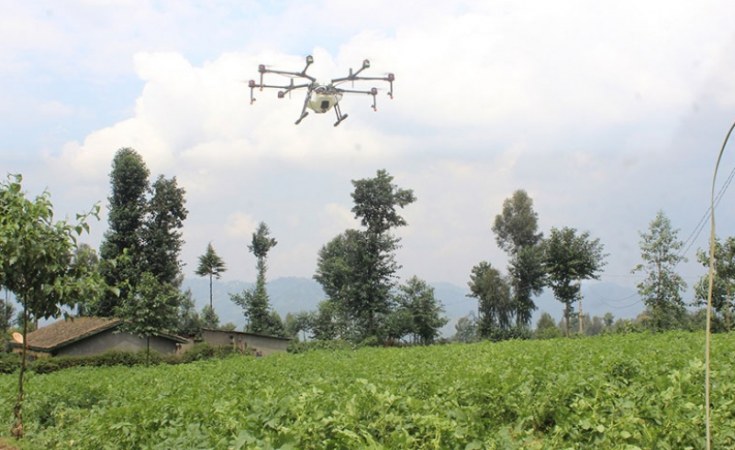The Ministry of Health in Partnership with Zipline and Partners in Health are conducting trials of how insulin medications for diabetes patients can be delivered at doorsteps using drones.
The trials were conducted in remote areas of Kayonza and Kirehe Districts according to officials.
Previously, drone-based technology has been delivering blood to health facilities in remote areas. This inspired to advance the technology to deliver insulin to homes of diabetes patients in remote areas.
How will it be done?
Patients with type 1 diabetes are trained on self-monitoring of their blood glucose and have clinic appointments. With this new process a patient will get informed ahead of time through a nurse's phone call that will require previous glucose readings from a patient, and ask him or her about any changes in health before recommending medications.
The nurse will then prescribe treatments or adjust if necessary, then send details of the prescription to Zipline for dispatch.
Zipline will then process the request from a storage depot at their sites and reach out to the patient before dispatching a drone carrying medication. Among deliveries that the patients will receive include insulins, syringes, lancents, glucometers, logbooks and strips.
The drop will then use coordinates to locate the patients' homes. Then fly there with a box containing medication on board and drop it at the patients' home.
After receiving the ordered box dropped by a Zipline drone at the site, notification messages will be shared with zipline, the health care provider and the patient for confirmation.
Project Rational
Currently, some type 1 diabetes patients have been chosen in Kayonza to pilot in the project that will benefit 27 patients including 15 in Kayonza and 12 in Kirehe Districts.
Among them include Phoebe Mukapapa a resident of Kabare sector in Kayonza District. Mukapapa has been relying on insulin medication for 9 years, she told The New Times that the project has helped her cut transport costs and accessibility barriers.
"I use Rwf 6000 from Kabare to Rwinkwavu hospital to get medication. It has been challenging to reach the hospital. It also required me to first request for a transfer from a health centre before going to the hospital," said Mukapapa.
Kayonza District vice Mayor in charge of Social Affairs, Jean Damascene Harelimana, said that the project will help patients increase their productivity improve their livelihoods
According to Dr Vincent Cubaka, a Medical practitioner and Researcher at Partners In Health, "We are exploring feasibility and acceptability of doorstep delivering of insulin and other drugs to patients especially those living with diabetes in remote areas that are very difficult to access health care facilities."
He added: "We are testing if this is an acceptable idea for them, and their health care providers, but also looking at the logistics of where a patient is living, with this study we will be able to make recommendations of what can be done next".
Early phases of the project testing demonstrated that adapting drone-based delivery of insulin medications to type 1 diabetes who rely on medication every day of their lives has yielded positive results and in the next 6 months there will be deliveries of insulin medication to diabetes patients at their doorsteps.


